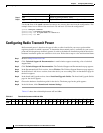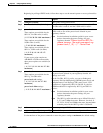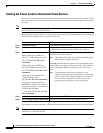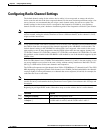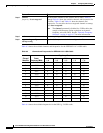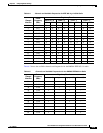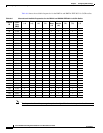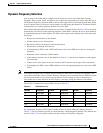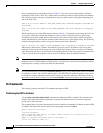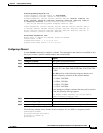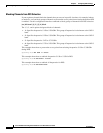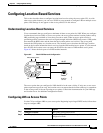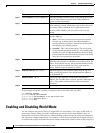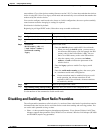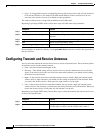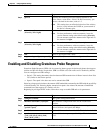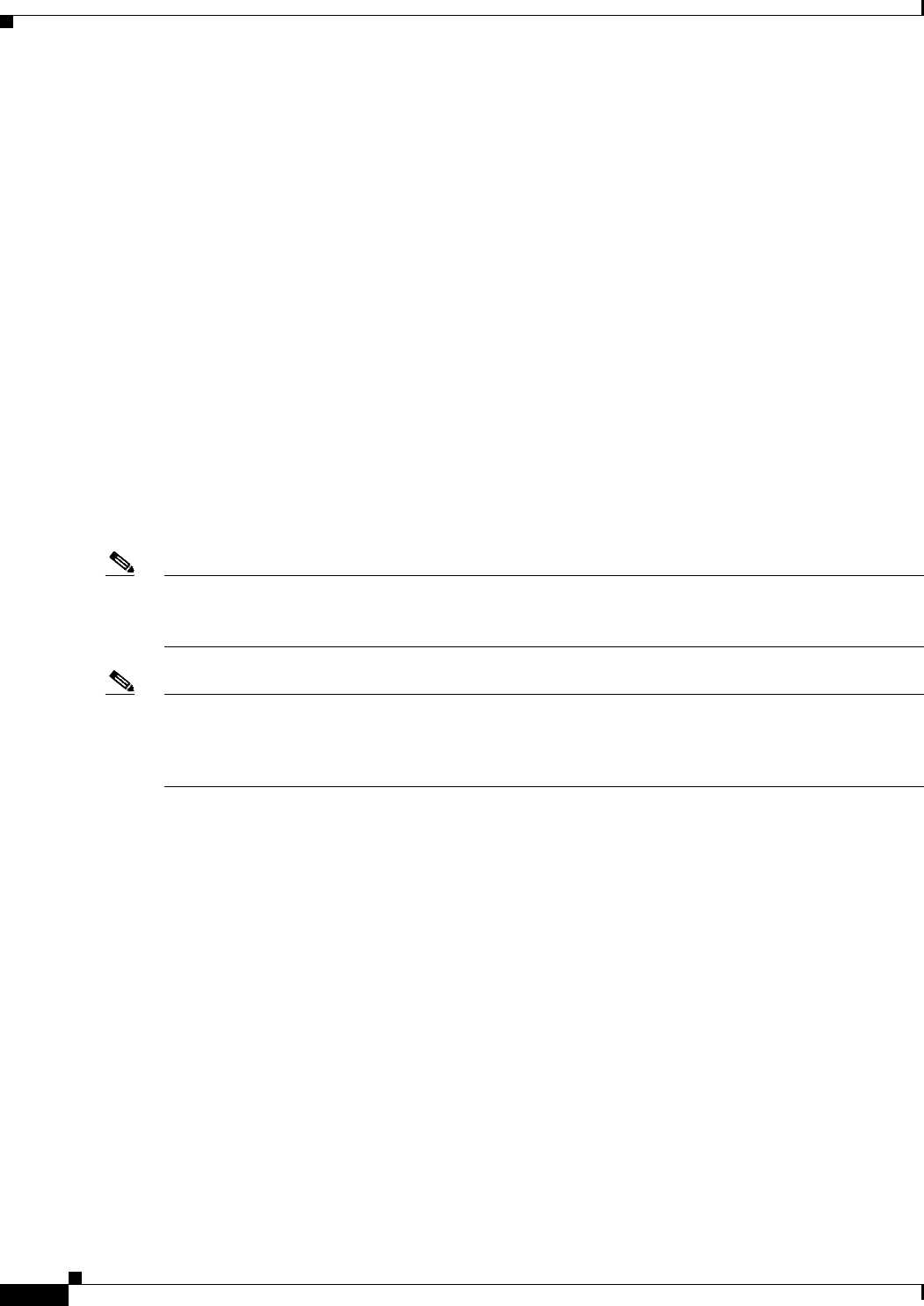
6-18
Cisco IOS Software Configuration Guide for Cisco Aironet Access Points
OL-11350-01
Chapter 6 Configuring Radio Settings
Configuring Radio Channel Settings
Prior to transmitting on any channels listed in Table 6-7, the access point radio performs a Channel
Availability Check (CAC). The CAC is a 60 second scan for the presence of radar signals on the channel.
The following sample messages are displayed on the access point console showing the beginning and
end of the CAC scan:
*Mar 6 07:37:30.423: %DOT11-6-DFS_SCAN_START: DFS: Scanning frequency 5500 MHz for
60 seconds
*Mar 6 07:37:30.385: %DOT11-6-DFS_SCAN_COMPLETE: DFS scan complete on frequency
5500 MHz
When operating on any of the DFS channels listed in Table 6-7, in addition to performing the CAC, the
access point constantly monitors the channel for radar. If radar is detected, the access point stops
forwarding data packets within 200 ms and broadcasts five beacons that include an 802.11h channel
switch announcement, indicating the channel number that the access point begins using. The following
example message displays on the access point console when radar is detected:
*Mar 6 12:35:09.750: %DOT11-6-DFS_TRIGGERED: DFS: triggered on frequency 5500 MHz
When radar is detected on a channel, that channel my not be used for 30 minutes. The access point
maintains a flag in non-volatile storage for each channel that it detects radar on in the last 30 minutes.
After 30 minutes, the flag is cleared for the corresponding channel. If the access point is rebooted before
a flag is cleared, the non-occupancy time is reset to 30 minutes when the channel initializes.
Note The maximum legal transmit power is greater for some 5-GHz channels than for others. When it
randomly selects a 5-GHz channel on which power is restricted, the access point automatically reduces
transmit power to comply with power limits for that channel.
Note Cisco recommends that you use the world-mode dot11d country-code configuration interface command
to configure a country code on DFS-enabled radios. The IEEE 802.11h protocol requires access points
to include the country information element (IE) in beacons and probe responses. By default, however,
the country code in the IE is blank. You use the world-mode command to populate the country code IE.
CLI Commands
The following sections describe CLI commands that apply to DFS.
Confirming that DFS is Enabled
Use the show controllers dot11radio1 command to confirm that DFS is enabled. The command also
includes indications that uniform spreading is required and channels that are in the non-occupancy
period due to radar detection.
This example shows a line from the output for the show controller command for a channel on which DFS
is enabled. The indications listed in the previous paragraph are shown in bold:
ap#show controller dot11radio1
!
interface Dot11Radio1
Radio AIR-RM1251A, Base Address 011.9290ec0, BBlock version 0.00, Software version 6.00.0
Serial number FOCO83114WK
Number of supported simultaneous BSSID on Dot11Radio1: 8
Carrier Set: Americas (OFDM) (US )



